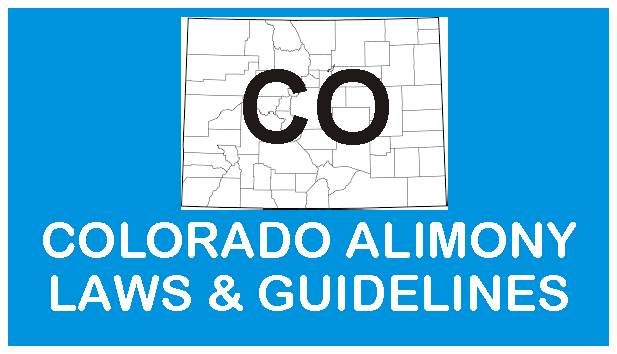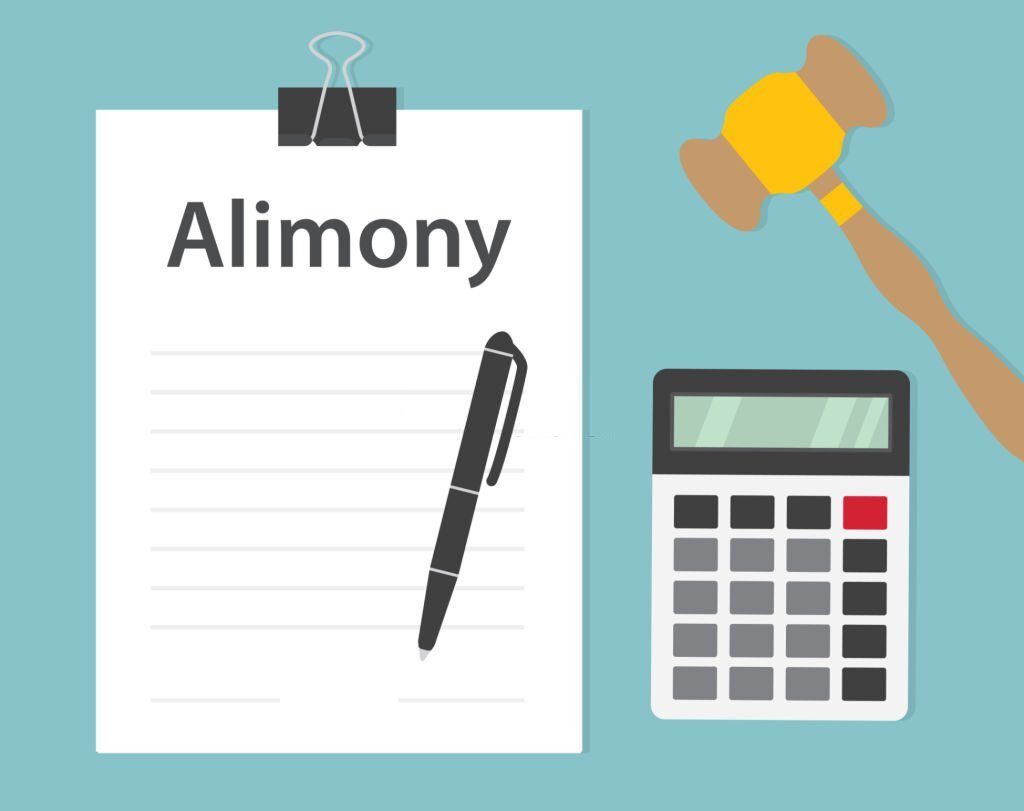
The alimony laws governing spousal maintenance in Colorado are different from what is obtainable in other states. Read further to grasp the peculiarity of the CO alimony law.
All 50 states in America are alimony states, meaning states that have enacted laws permitting a spouse who cannot work full time or with a lower income to request payments from the other spouse to support themselves after a divorce.
What is Alimony?
Also referred to as “spousal support” or “spousal maintenance” in Centennial State, alimony is the series of payments made by one spouse (the payor spouse) to another (the supported or payee spouse) after the divorce.
Before the alimony payments commence, there has to be a written order or agreement which requires the payor to support the payee with a stipulated amount of money.
This agreement eliminates any disputes in the future about why the payment was made or when it’s not made.
Type of Alimony Laws Practiced in CO

Types of alimony in Colorado
Several types of spousal maintenance are recognized by Colorado courts during and after a divorce, including statutory maintenance (includes temporary maintenance) and contractual and non-modifiable maintenance. Contractual and non-modifiable maintenance can only be agreed upon between the divorcing parties.
Statutory Maintenance in Colorado
When a judge issues permanent orders and the marriage is dissolved, statutory maintenance is usually awarded. When a couple lawfully separates, though, spousal maintenance may be awarded. According to Colorado law, spousal support is calculated as a percentage of the length of the marriage.
For instance, on the low end of the scale, alimony could be paid for less than a year. On the other hand, someone could be granted ten years of maintenance.
The alimony term chart is for marriages that last between three and twenty years. If you and your spouse have been married for three years, you may be liable for alimony for 11 months, or 31% of the marriage’s duration.
Temporary Maintenance in CO
“Separation alimony” or “pendente lite support” are other terms for temporary maintenance. A judge can compel the higher-earning spouse to pay spousal maintenance on a temporary basis if one spouse cannot financially support themselves while the divorce is underway.
When the divorce is finalized, the temporary maintenance comes to an end. If spousal support has been awarded, it will begin at that time.
Rehabilitative Maintenance in Colorado
This is perhaps the most prevalent form of spousal maintenance, in which the higher-earning spouse offers financial support to the lower-earning spouse in order to allow them time to gain necessary work skills or career training in order to become self-sufficient.
In most cases, the judge orders rehabilitative support for a set period of time, based on how long it should take a spouse to achieve financial freedom.
Reimbursement Support in CO
This is a more strictly defined compensation given in circumstances when one spouse paid for the education or career training of the other spouse during the marriage. Enhanced education or training benefits both spouses throughout a marriage, but only the beneficiary of the training will benefit following a divorce. This assistance aims to even the playing field.
Permanent Maintenance in Colorado
This is a rare award given exclusively in difficult divorces where one spouse is unable to become financially self-sufficient due to older age, illness, disability, or other comparable circumstances.
Who Pays Alimony in Colorado?
In Colorado alimony law, the spouse that makes most of the money will share that income with the other spouse. The idea behind who pays for alimony is to considerably level up the living standard of the dependent spouse to what it was while the marriage was on.
Regarding the sex that pays, alimony in Centennial State is gender-neutral, meaning either spouse can request support from the other. As long as the alimony can be provided to the requesting spouse, then it will most likely be granted.
So a husband can receive alimony from a wife in Colorado if the above conditions are met.
How Long Does Spousal Support Last in CO?

The judge will decide how long the alimony payment should last in Colorado
The Colorado statutes do not specify an exact duration, meaning the judge uses his discretion. It states – An award of maintenance shall be in an amount and for a term that is fair and equitable to both parties and shall be made without regard to marital misconduct.” C.R.S.A. § 14-10-114
However, when a couple has been married for 20 years or more, the courts have the authority to award indefinite support.
Although the state’s spousal support term standard excludes marriages that last less than three years, a judge can nevertheless award spousal support to someone after only one or two years of marriage.
Calculating the Term of Maintenance in Colorado
A court will also use a statutory guideline to determine the length of support. C.R.S. § 14–10–114(3)(b)(II)(B). The formula begins with three-year marriages (36 months) and multiplies the number of months of marriage by a percentage to determine how many months of maintenance should be paid. Although there is a different amount for each month of marriage on the real table, here are some of the highlights:
- 3-Year Marriage
(Percentage applied = 31%) – (Term of Maintenance = 11 months) - 6-Year Marriage
(Percentage applied = 37%) – (Term of Maintenance = 27 months) - 10-Year Marriage
(Percentage applied = 45%) – (Term of Maintenance = 54 months) - 15-Year Marriage
(Percentage applied = 50%) – (Term of Maintenance = 90 months) - 20-Year Marriage
(Percentage applied = 50%) – (Term of Maintenance = 120 months) - 20+ Year Marriage
120 Months or Indefinitely
How to Collect Spousal Support Arrears in Colorado
When it comes to collecting spousal support in Colorado, you have a few choices if your ex-spouse has failed to make alimony payments as ordered by the court. Debts for spousal maintenance are frequently given priority among debtors under US law.
Factors That Influence Alimony in Colorado
To determine the final amounts for rehabilitative and permanent support in CO, the courts in CO take into consideration the income of the spouses, plus other factors like:
- earning capacity of each spouse.
- the ability of the paying spouse to pay, considering assets, the standard of living, earning capacity, as well as earned and unearned income.
- the extent of contribution the supported spouse gave to the other’s educational pursuit or professional license during the marriage
- how long the marriage lasted
- the needs of each spouse
- the assets and debts of each spouse including separate property
- each party’s tax consequences
- the ability of the supported spouse to gain employment without interfering with their children’s care
- each spouse’s health and age
- each party’s balance of hardships
- whether there is a documented history of domestic violence against the children or either party
- will the dependent spouse be self-supporting within a reasonable period
- any criminal conviction of an abusive spouse
- any other factors which the court wishes to consider
This is the main measure the court uses to determine the amount to be paid in Centennial State. The principle behind the standard of living of the marriage is that after the marriage breakup, both spouses should continue living within the same standard they lived while the marriage lasted.
How Alimony is Calculated in CO

How Alimony is Calculated in Colorado
Unlike many other states, Colorado law provides judges with a formula for calculating spousal support. According to the formula, the lower earner receives a monthly payment equal to 40% of the higher earner’s monthly adjusted gross income minus 50% of the lower earner’s adjusted gross income.
The court will consider whether either party pays or receives child support or spousal maintenance for kids or an ex-spouse from a previous marriage before applying the formula. (C.R.S. §14-10-114(1)(a).)
For instance, if the higher-earning spouse earns $10,000 per month and the lower-earning spouse earns $2,000 per month, yet neither partner makes nor receives funding from another marriage, the support award would be $3,000 ($4,000, or 40% of $10,000, minus $1,000, or 50% of $2,000).
>>> Colorado Spousal Maintenance Calculator
Importance of Using a Skilled Colorado Spousal Maintenance Attorney
If you’re getting a divorce in Colorado and need to negotiate or re-negotiate spousal support, you’ve definitely got a lot of questions and want to seek competent legal guidance. Though state Supreme Courts have supported lifetime spousal maintenance,
your circumstances may or may not fulfill the requirements. SO courts may judge your case differently based on the merits of you and your previous spouse. There are so many variables to consider.
If you want to get spousal support for the rest of your life or if you want to fight against it in Colorado, an expert divorce lawyer can help. Depending on the objective and the desire of the adversary attorney to bargain in good faith, you’ll need attorneys that are both empathetic and strong.
For the convenience of our members, we have an up-to-date directory of CO divorce and spousal maintenance attorneys who can help with a variety of issues. For legal advice and
representation on spousal support that is powerful and well-informed.
Click Here to Get our Free Iowa Alimony recommendation.
FAQ About Colorado Alimony Laws
Here are Frequently Asked Questions about spousal support laws in CO:
Can a Husband get Alimony in CO?
Yes. In Colorado, alimony payment is gender-neutral, meaning the sex that pays or receives is not the main determinant, but other factors as stated above. For details click here.
Who Qualifies for Alimony in Colorado?
Just as either spouse can pay or receive, the party that qualifies to receive spousal maintenance is the dependent party while the marriage lasted. This means that in CO, the spouse that had lesser or no income when the marriage was on is also the one qualified to receive alimony. Click here for details
How Long do you have to be Married to get Alimony in CO?
To understand how long alimony lasts in Colorado, you have to take into consideration how long the marriage lasted.
However, bear in mind that there is no limit to the duration you can pay or receive alimony for marriages that lasted 10-20 years or more. Any marriage that lasted below 20 years will not pay nor receive alimony that exceeds 50% of the duration of the marriage.
Is Alimony Tax Deductible in Colorado?
Following the passage of the Tax Cuts and Jobs Act, which altered the link between alimony and taxes dramatically in Colorado and all over the US, alimony payments are no longer tax deductible for the payer and are no longer recognized as income for the recipient spouse as of January 1, 2019.
Is Alimony Mandatory in Centennial State?
Alimony is mandatory in Colorado as long as one of the spouses earns or owns assets that can be relied upon to support the other spouse after the marriage breaks down.
Can Alimony be increased in Colorado?
Alimony amount or duration can be increased or decreased due to changes in the financial circumstances of the parties in different ways, including:
- an increase or decrease in the income of the alimony recipient
- if it’s determined that the original alimony awarded is inadequate
- loss to the alimony recipient’s financial assets
- an increase in the justified expenses of the alimony recipient
- when the financial condition of the receiving spouse fails to improve as originally expected
Can you go to Jail for Not Paying Spousal Maintenance in CO?
Technically, you will not be jailed for not paying alimony in Colorado. While there are varying consequences for not paying alimony, you can still end up in jail as a result. Here is how.
If it’s a Colorado court-ordered spousal maintenance that you refuse to pay, it means you are in violation of a court order meaning you can be prosecuted for being in contempt of court if contempt proceedings are brought up against you. This could attract a jail term in CO}.
How to Modify Spousal Support in CO

How to Avoid spousal maintenance in Colorado
In Colorado, either spouse can ask for a modification from the formula if they believe it is unjust, and the judge who grants the request must explain why. The spouses can forego interim maintenance, but the agreement must state why the waiver is being made. If the judge believes the waiver agreement is highly unjust, the court may reject it.
When filing for a spousal maintenance modification in Colorado, keep in mind that the courts will only entertain the motion if there has been a significant and long-term change in circumstances. A brief problem is unlikely to be significant enough to warrant a revision in the initial alimony ruling. Likewise, dissatisfaction with the support order is not a valid reason for a revision in CO.
The following are some of the most common reasons for requesting an alimony modification in Colorado:
- Retirement
- Remarriage
- Relocation
- Changes in income or employment
- Birth of a new child
- Health changes, including disability
- A new dependent
How to Avoid or End Spousal Support in Colorado
In Centennial State, the spouse paying the alimony can successfully avoid or stop the alimony payment if he/she is able to prove any or all of the following points:
- that the dependent spouse is guilty of infidelity
- the spouse proves that he has no source of income
- the spouse remarries and has to take care of the new spouse however, he/she will continue paying the child support for children if any
- if the spouse is disabled and unable to earn a living
Colorado Resource
- Colorado Child Adoption Guidelines
- Colorado Childcare Guidelines
- Colorado Child Custody and Visitation Guidelines
- Colorado Child Support Guidelines
- Colorado Divorce Guidelines
- Colorado Marital Property Guidelines
- Colorado Spousal Support Guidelines
- How to Check Colorado Child Support Payment History
Alimony Laws in all 50 States
A Alabama | Alaska | Arizona | Arkansas
C California | Colorado | Connecticut
D-H Delaware | Florida | Georgia | Hawaii
I Idaho | Illinois | Indiana | Iowa
K-L Kansas | Kentucky | Louisiana
M Maine | Maryland | Massachusetts | Michigan | Minnesota | Mississippi | Missouri | Montana
N Nebraska | Nevada | New Hampshire | New Jersey | New Mexico | New York | North Carolina | North Dakota
O Ohio | Oklahoma | Oregon
P-S Pennsylvania | Rhode Island | South Carolina | South Dakota
T-U Tennessee | Texas | Utah
V-W Vermont | Virginia | Washington | West Virginia | Wisconsin | Wyoming





